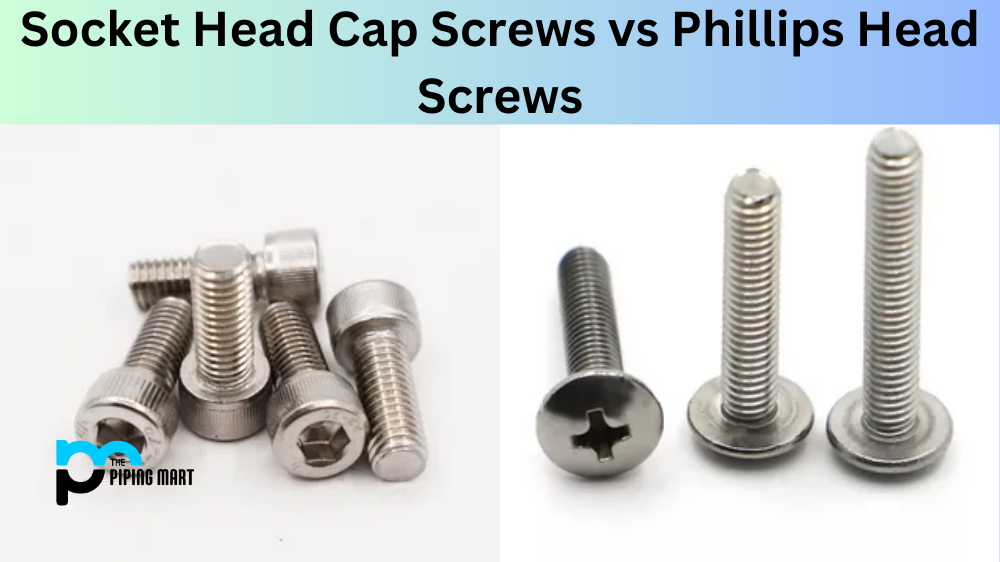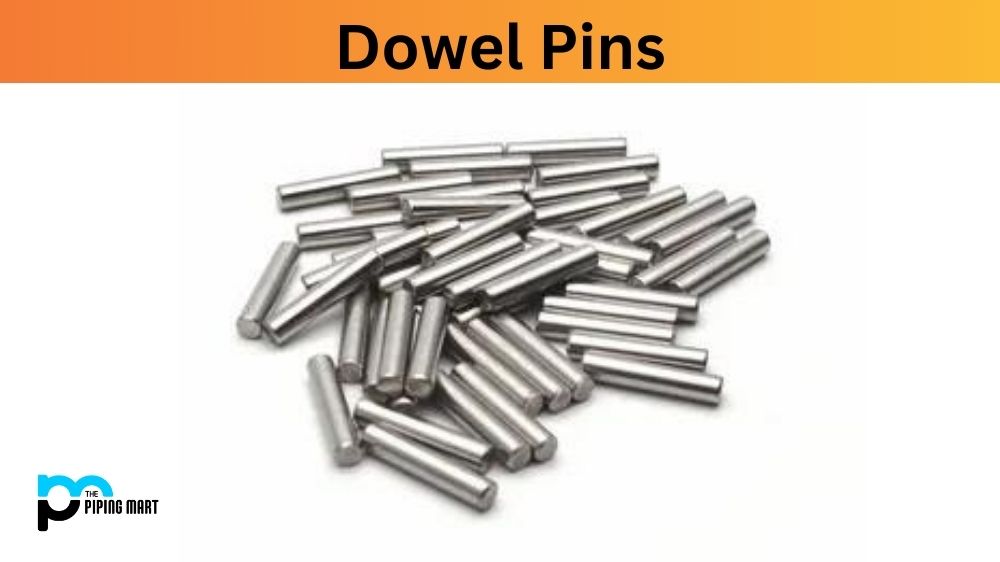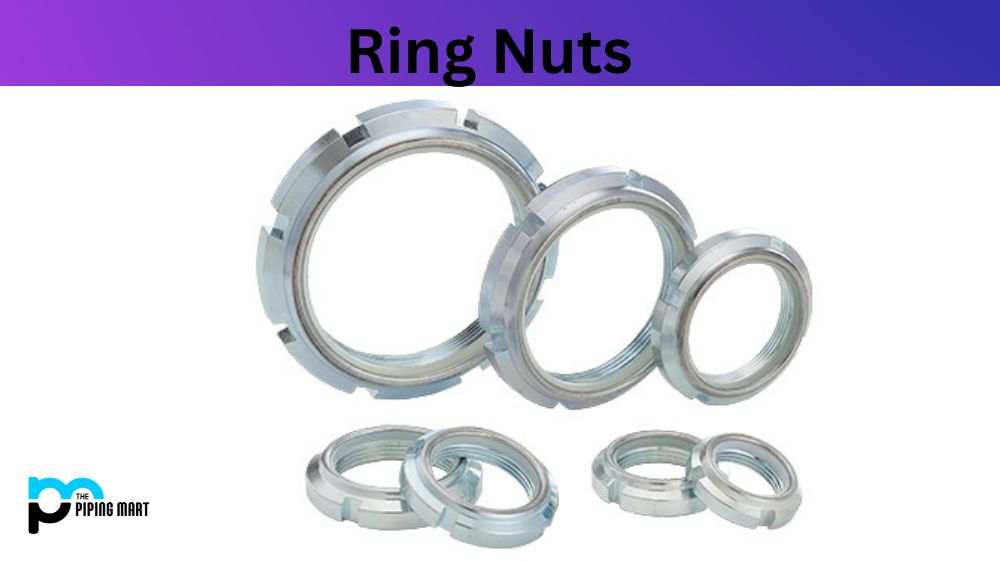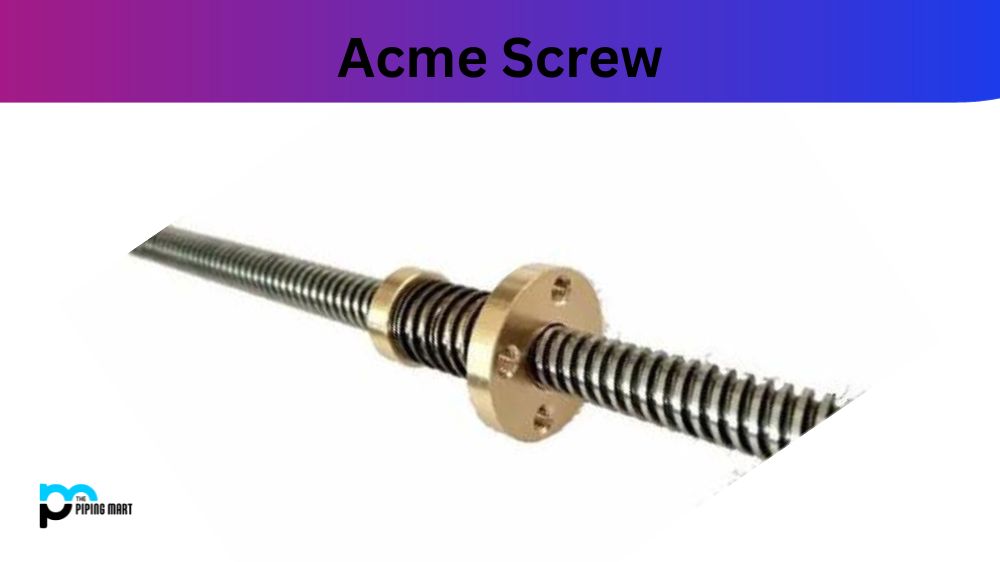When it comes to fastening two pieces of metal together, screws are the go-to option for most of us. However, not all screws are created equal, and it’s essential to choose the right type of screw for each application. One of the most popular types of screws used in manufacturing and construction is the socket head cap screw, whereas the Phillips head screw is a widely used option in household applications. This blog will explore the differences between socket head cap screws and Phillips head screws to help you make an informed decision.
What are Socket Head Cap Screws?
Socket head cap screws (SHCS) are typically used for high-stress applications in industries like aerospace and automotive. They have a cylindrical head with a hex socket recess on the top and a mid-section that features fine threads that help to produce high clamping forces. They are made from durable materials like alloy steel, stainless steel, and titanium and are incredibly corrosion-resistant. Socket head cap screws come in various lengths, diameters, and grades to meet different strength and durability requirements.
Socket head cap screws, also known as Allen bolts or cap head bolts, are a type of fastener commonly used in various industries. They are characterized by their cylindrical heads and hexagonal socket drives, allowing for easy installation with an Allen wrench.
These screws have become the go-to choice for many applications due to their unique design and features. The socket head offers a larger contact area compared to other screw types, distributing the force evenly and preventing damage to the surface being fastened. This makes them ideal for delicate plastic or thin metal sheets.
What are Phillips Head Screws?
Phillips head screws are used in a wide range of applications across multiple industries. They have a cross-shaped head that requires a screwdriver with a matching cross-shaped tip to install or remove them. They come in various lengths, diameters, and materials, including stainless steel, plastic, and brass. Phillips head screws are convenient and easy to use, which makes them a perfect option for household repairs.
Phillips Head Screws, also known as crosshead screws, are one of the most commonly used types of screws in various industries and everyday household tasks. Developed by Henry Phillips in the 1930s, these screws have revolutionized the way we fasten objects together.
One of the main advantages of Phillips Head Screws is their ability to self-center while being screwed in. This is due to their unique shape that features four flat sides forming a cross. This design allows for easier and more efficient insertion into wood, plastic, or metal materials.
Differences Between Socket Head Cap Screws vs. Phillips Head Screws
One of the most apparent differences between SHCS and Phillips head screws is the head shape. While the SHCS has a hexagonal, cylindrical head, the Phillips head screw has a cross-shaped head. SHCS has a much higher clamping force than Phillips head screws, making them an ideal choice for applications that require significant torque and tension, like engine parts, structural engineering, and machine assembly. On the other hand, Phillips head screws are much more flexible, use less material, and are generally cheaper compared to SHCS.
Benefits of Socket Head Cap Screws
Socket head cap screws are beneficial in structural applications where bolts or nuts cannot be used. They have a smaller head than traditional hex bolts, meaning they take up less space and are also aesthetically appealing. Their smaller head size also makes them less likely to catch on clothing or other materials, reducing the risk of accidents. SHCS also have a higher strength-to-weight ratio than Phillips head screws, which makes them ideal for applications that require high strength-to-weight performance.
Benefits of Phillips Head Screws
Phillips head screws are incredibly versatile, and their design is such that they can work in almost any application. They can combine materials like wood, metal, and plastic, making them popular in construction and home improvement. Another significant advantage of Phillips head screws is that they are relatively affordable and easy to find, making them an excellent choice for quick repairs.
Conclusion:
In conclusion, understanding the differences between socket head cap screws and Phillips head screws can help you choose the right fastening solution for your application. If you need high clamping force, resistance to corrosion, high strength-to-weight ratio, and long-lasting durability, socket head cap screws are the best choice. However, if you are looking for something versatile, easy to install, and affordable, Phillips head screws are the best bet. Regardless of which option you choose, make sure you check if the screw material meets your environmental requirements to get the best benefit from your investment.
Sakshee is a talented blogger, with a particular focus on the Business and Metal Industry. She is passionate about sharing her insights on various metal products and helping professionals to make a better decisions.




